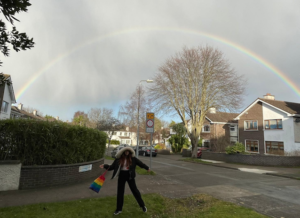 As I'm sure you're well aware, applying for placements can be a lot. First up there’s the whole ordeal of deciding which placements you want to apply for. And after that there’s the cover letters, CVs, interviews and tests. So clearly it’s not as simple as thinking you’re suited for a placement and magically ending up there. You have to chase the end of the rainbow if you want the magic golden pot after all, but fear not because one of the biggest nuggets of advice I can give you is to choose to apply for placements you're genuinely interested in and go from there. After all, selling an ideal placement year for yourself and your placement provider is a lot easier than selling one just for the sake of it.
As I'm sure you're well aware, applying for placements can be a lot. First up there’s the whole ordeal of deciding which placements you want to apply for. And after that there’s the cover letters, CVs, interviews and tests. So clearly it’s not as simple as thinking you’re suited for a placement and magically ending up there. You have to chase the end of the rainbow if you want the magic golden pot after all, but fear not because one of the biggest nuggets of advice I can give you is to choose to apply for placements you're genuinely interested in and go from there. After all, selling an ideal placement year for yourself and your placement provider is a lot easier than selling one just for the sake of it.
Therefore, knowing what you want out of your placement is crucial for deciding what placements to go for. Reflecting on your current experiences can really help with this.  For example, you could make a list of the different modules you’ve enjoyed throughout your first two years of your course and see if there’s any placements that match any of those specific topics. Additionally, if you’ve done any extracurricular work or volunteering related to your degree that you’ve found interesting, looking for a placement in a similar sector could also be a good idea. Or if you have an idea of what you want to do once you’ve graduated and a company is offering you this specific role or one similar, then this could be the perfect time to test your idea out. After all, placements are glimpses into what life after university can look like, so using it to test the waters of a dream before you dive in head-first is actually a really valuable use of your year.
For example, you could make a list of the different modules you’ve enjoyed throughout your first two years of your course and see if there’s any placements that match any of those specific topics. Additionally, if you’ve done any extracurricular work or volunteering related to your degree that you’ve found interesting, looking for a placement in a similar sector could also be a good idea. Or if you have an idea of what you want to do once you’ve graduated and a company is offering you this specific role or one similar, then this could be the perfect time to test your idea out. After all, placements are glimpses into what life after university can look like, so using it to test the waters of a dream before you dive in head-first is actually a really valuable use of your year.
Now, I’m not saying to stay in your comfort zone and just apply for a placement because you feel like you already know a lot about the kind of work you’ll be doing. 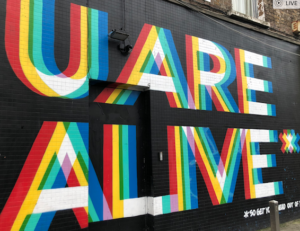 Placements are about learning and growing and gaining valuable experiences you wouldn’t have had before. And if you do want to go for a placement completely different to anything you’ve done before because you’re passionate about the work it offers and the experiences you’ll gain from it, then you should 100% apply for it. But having that passion is the important thing, because if you go into a placement where you’re not interested in the work, then you could end up on a placement that’s both meaningless for you and your placement provider. And although it’s not the entirety of your future that’s at stake here, it’s still a year of your life. So do spend time going through the list of placements and actually choosing ones you could not only see yourself being good at, but that you could see yourself enjoying and really gaining valuable life experiences from.
Placements are about learning and growing and gaining valuable experiences you wouldn’t have had before. And if you do want to go for a placement completely different to anything you’ve done before because you’re passionate about the work it offers and the experiences you’ll gain from it, then you should 100% apply for it. But having that passion is the important thing, because if you go into a placement where you’re not interested in the work, then you could end up on a placement that’s both meaningless for you and your placement provider. And although it’s not the entirety of your future that’s at stake here, it’s still a year of your life. So do spend time going through the list of placements and actually choosing ones you could not only see yourself being good at, but that you could see yourself enjoying and really gaining valuable life experiences from.
There’s also the technical side of placements to think about. Does the placement pay, do they provide accommodation; can you easily find a place to live there; can you afford to live there; can you get extra funding for this placement; do you need a car for commuting? These are important questions to be asking yourself when applying, because not only is your placement about the work you’ll be doing, but it’s also about the place you’ll be living and the experiences you’ll be having outside of this work.  It’s also an excellent time to try things that are outside of your comfort zone, like moving abroad and experiencing a new culture or even language. After all, if there's ever a time to try out something new it's now. On placement you know you have the support of the university and your placement provider backing you, as well as the knowledge that it will be over within a year and you'll be back in the comfortable security of Bath. So why not go for the more exotic placement that you're slightly anxious about but really fascinated by?
It’s also an excellent time to try things that are outside of your comfort zone, like moving abroad and experiencing a new culture or even language. After all, if there's ever a time to try out something new it's now. On placement you know you have the support of the university and your placement provider backing you, as well as the knowledge that it will be over within a year and you'll be back in the comfortable security of Bath. So why not go for the more exotic placement that you're slightly anxious about but really fascinated by?
What and where your placement is does shape the experiences you have throughout your placement year, and these experiences shape what you learn and who you become throughout this year. Thus, thinking about all these different factors can be the difference between having a productive but dull year or having a year where you immerse yourself in new and exciting experiences that really promote growth and help you unlock new skills and find a new sense of self-worth and independence that can show you who you are and who you want to be in the world, both in terms of your academics/career and as a person in general.
For me, I found the newness of my placement to be simultaneously the most challenging and most rewarding part about it. I was working in a setting I had never been in before, with new responsibilities and challenges to deal with on a daily basis. 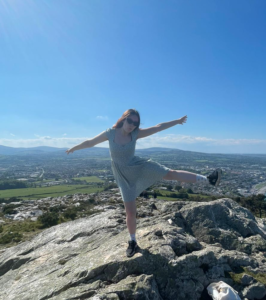 And on top of this I was living in a different country where I knew nobody before I moved there. But even before going on placement I knew I was interested in what it offered: the chance to work with vulnerable adults and provide real hands-on care for them, as well as the chance to live in a new country rent free. Now, I had done volunteering with Alzheimer’s patients before going on my placement, and this did help me in my application process as I had a general understanding of what it was like to work with people who may not have the most clear perception of the world around them and thus could present challenging behaviour. And this extracurricular volunteering really did help with my application process, as I was able to relate these experiences to what I would be doing on placement to show my suitability. And then from this pre-existing foundation I went into this new environment and was able to go through these challenges and come out the other side with a new-found appreciation for my own skills in dealing with vulnerable adults as well as new ideas for what I want to do with my future.
And on top of this I was living in a different country where I knew nobody before I moved there. But even before going on placement I knew I was interested in what it offered: the chance to work with vulnerable adults and provide real hands-on care for them, as well as the chance to live in a new country rent free. Now, I had done volunteering with Alzheimer’s patients before going on my placement, and this did help me in my application process as I had a general understanding of what it was like to work with people who may not have the most clear perception of the world around them and thus could present challenging behaviour. And this extracurricular volunteering really did help with my application process, as I was able to relate these experiences to what I would be doing on placement to show my suitability. And then from this pre-existing foundation I went into this new environment and was able to go through these challenges and come out the other side with a new-found appreciation for my own skills in dealing with vulnerable adults as well as new ideas for what I want to do with my future.
So be brave and smart in the placements you choose to apply for. Do choose a placement that is feasible and you are able to access on a practical level, otherwise you're going to create unnecessary complications for yourself and your placement provider. 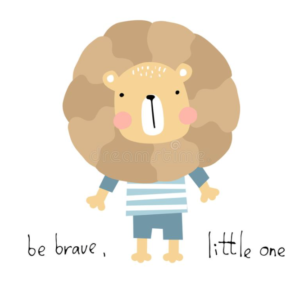 But on top of this choose a placement for yourself: for your potential growth and the future that you want. Choose a placement that when you’re reading the description you’re not just reading it but you’re picturing yourself there and that picture is something truly meaningful. For you can gain so much out of this year if you allow yourself to chase the gold and not just take the easiest option there is. And remember, your dissertation is going to be based off of this year, so if you find yourself stuck somewhere where you feel like you're wasting away, that feeling may be stuck with you for a rather large portion of the rest of your degree, which could also cause you to procrastinate more on your dissertation and end up with a lower mark. So really, for your sake, make a smart and empowering decision every time you decide to apply for a new placement. And don't be scared of rejection, because that's just a part of life and it just means that that placement wasn't right for you, but if you keep on applying to ones where you do have that passion you may just find yourself living the best year of your life so far.
But on top of this choose a placement for yourself: for your potential growth and the future that you want. Choose a placement that when you’re reading the description you’re not just reading it but you’re picturing yourself there and that picture is something truly meaningful. For you can gain so much out of this year if you allow yourself to chase the gold and not just take the easiest option there is. And remember, your dissertation is going to be based off of this year, so if you find yourself stuck somewhere where you feel like you're wasting away, that feeling may be stuck with you for a rather large portion of the rest of your degree, which could also cause you to procrastinate more on your dissertation and end up with a lower mark. So really, for your sake, make a smart and empowering decision every time you decide to apply for a new placement. And don't be scared of rejection, because that's just a part of life and it just means that that placement wasn't right for you, but if you keep on applying to ones where you do have that passion you may just find yourself living the best year of your life so far.
And by making these smart and brave choices you’ll actually make the rest of the application process that much easier: as translating real enthusiasm into your cover letters and interviews is so much more feasible than forging it as you go. And that real desire for the placement will put you one step closer to securing it,  because that’s what placement providers are looking for: genuine interest for everything that their placement offers. This includes not only the content, but also any additional bonuses they offer (such as moving abroad; being able to study at another university; being able to practice a new language etc.). So whilst the basis of your application does need to focus on the content of the placement, including these added bonuses in your interviews really shows how much you are looking forward to the placement in general and how it will help you develop not only professionally, but also as an individual.
because that’s what placement providers are looking for: genuine interest for everything that their placement offers. This includes not only the content, but also any additional bonuses they offer (such as moving abroad; being able to study at another university; being able to practice a new language etc.). So whilst the basis of your application does need to focus on the content of the placement, including these added bonuses in your interviews really shows how much you are looking forward to the placement in general and how it will help you develop not only professionally, but also as an individual.
So be sure when applying that you have made a choice that you are generally happy with and that you can sell from your heart. Do be sure to relate your placement to things that interest you now and show them how what you're doing on placement will help you build on your prior theoretical and practical knowledge to become a better psychologist or whatever it is you're study. But also be sure to relate the placement to your life in general, because placement providers want you to make the most out of this year and to use the placement they're offering you to help you steer your future towards where it's supposed to be.
So be wise in your placement application choices and the rest will fall naturally into place. And if you do have any questions about the placement application process, please feel free to leave a comment below and I’ll get back to you ASAP! In the meantime, I wish everyone who is applying for placements the best of luck and I’m sure you’ll find an amazing place to spend the year.
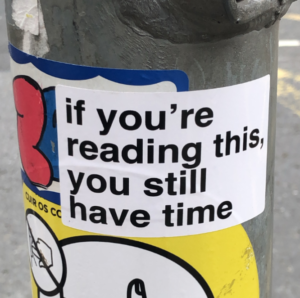


Great article Sarah!
thank you! 😀